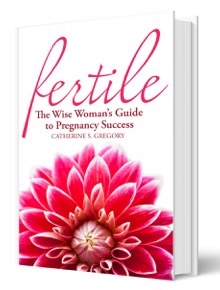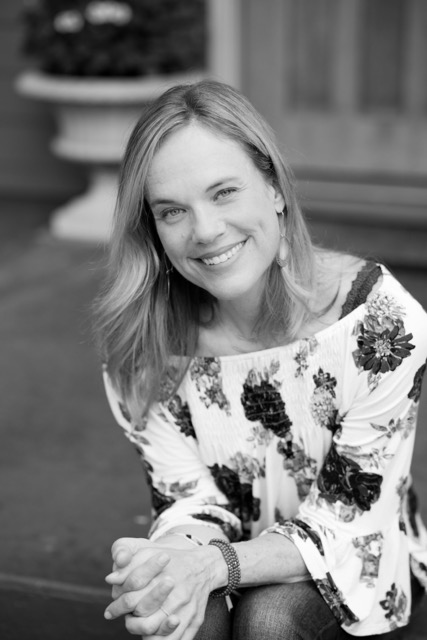 In this first of two interviews with Catherine S. Gregory CMT, CMI, she offers insights for clinicians about how to develop a holistic plan for women and couples wishing to conceive and or who have difficulty taking pregnancy to full term. Gregory, CMT, CMI, is a holistic fertility coach, intuitive healer, meditation instructor and creator of The Fertile Being Method, a holistic protocol helping women successfully achieve motherhood since 2004. Her clients have naturally overcome a range of conditions to achieve pregnancy success including repeat miscarriage, blocked tubes, uterine fibroids and “unexplained infertility”. In addition to her work with private clients, she enjoys training medical practitioners to incorporate The Fertile Being Method into their own practices.
In this first of two interviews with Catherine S. Gregory CMT, CMI, she offers insights for clinicians about how to develop a holistic plan for women and couples wishing to conceive and or who have difficulty taking pregnancy to full term. Gregory, CMT, CMI, is a holistic fertility coach, intuitive healer, meditation instructor and creator of The Fertile Being Method, a holistic protocol helping women successfully achieve motherhood since 2004. Her clients have naturally overcome a range of conditions to achieve pregnancy success including repeat miscarriage, blocked tubes, uterine fibroids and “unexplained infertility”. In addition to her work with private clients, she enjoys training medical practitioners to incorporate The Fertile Being Method into their own practices.
Gregory’s book, Fertile, The Wise Woman’s Guide to Pregnancy Success, is a  seldom explored look at fertility from a holistic perspective. As this book discusses, getting and staying pregnant is not always as straightforward as one might expect. And when problems arise, the medical community is not ideally prepared to help women and couples address infertility by looking at the whole person. During this interview with Catherine Gregory, we will highlight some of the most crucial issues that physicians need to be aware of when a patient comes to them with fertility problems.
seldom explored look at fertility from a holistic perspective. As this book discusses, getting and staying pregnant is not always as straightforward as one might expect. And when problems arise, the medical community is not ideally prepared to help women and couples address infertility by looking at the whole person. During this interview with Catherine Gregory, we will highlight some of the most crucial issues that physicians need to be aware of when a patient comes to them with fertility problems.
Q: The words ‘infertile’ or ‘infertility’ have so many stigmas attached to them. Women and men often feel shameful, depressed and hopeless when they cannot conceive or take a pregnancy to full term. What advice can you give to physicians in the language they might use with patients in this difficult situation?
CSG: These words set the patient up to feel like a failure before they see what all might be possible. The majority of my clients previously diagnosed with “infertility” end up conceiving a healthy pregnancy once they are given holistic tools to explore and heal the root causes of their reproductive imbalances.
The words and phrases patients hear from their practitioners (and society in general) often inform their mindset and beliefs about their ability to naturally conceive a baby. ‘Infertility’ sounds like the end of the road for the chance of natural pregnancy, but it is not. I encourage my patients to erase those words from their vocabulary and find new phrases to use such as ‘fertility challenge’ or ‘fertility journey’ instead. The ‘advanced maternal age’ phrase is another one that should go. It creates unnecessary stress for women approaching or over the age of 35. I consistently have clients over 40 who achieve pregnancy success.
Q: Your practice seeks to help clients by bringing the body back to a state of wellness, a program you call The Fertile Being Method. You write, “From a holistic perspective, our fertility is not just impacted by physical conditions such as endometriosis, polycystic ovarian syndrome or male factor issues like low sperm count. Our fertility is also affected by what we consume, both physically (our dietary and lifestyle habits) as well as what we consume mentally (our thoughts, perceptions, beliefs and resulting emotions).” Where and how do you begin this process when consulting with a woman who cannot conceive?
CSG: With fertility challenges, it is imperative to look at the whole person, including the mind-body connection as well as lifestyle habits. There are many pieces to the complex fertility puzzle, and each patient’s puzzle is unique. My clients each complete comprehensive intake forms that address their physical/medical/family history as well as their emotional, mental and spiritual well-being. Stress is inherent when you’re not getting or staying pregnant, and this increase of stress hormones prohibits the body’s ability to balance reproductive hormones. Teaching my clients how to reduce and manage their stress is the first step towards bringing their natural fertility back into balance.
Q: You specialize in a specific form of uterine massage. Can you explain how this works from a clinical perspective?
CSG: I am certified in the Arvigo Techniques of Maya Abdominal Therapy. This is a modern, holistic modality for reproductive and digestive health that includes the ancient practice of Maya uterine massage. The uterus is held in place by more than a dozen ligaments so that it can grow and stretch during pregnancy, but this makes it a very mobile organ, easily displaced by falls or high impact exercise or trauma. A displaced uterus (including retroversion/anteversion) can be the cause of painful menstrual cramping, hormone imbalance, blocked Fallopian tubes, ovarian cysts and lead to a number of other physical symptoms and conditions that result in impaired fertility.
The external massage technique I use and teach to my clients empowers them to assess the position of their uterus and realign it in the center of the pelvis, often eliminating symptoms and dramatically improving overall reproductive health. Regular/daily uterine massage reduces pelvic stagnation and congestion, including surgical adhesions, and improves egg quality as well as the health of the uterine lining. The increased blood and lymphatic fluid circulation also supports hormone balance and healthy ligament elasticity, helping to prevent uterine prolapse and maintain proper uterine alignment.
Q: One of the foundation principals of your practice is the chakra system. How do you use these energy systems, particularly the sacral chakra, to help women restore their bodies?
CSG: Science has proven that everything is energy when broken down into its smallest unit. The health of our personal energetic system, also known as the chakra system, directly impacts our physical health. Each of the body’s seven major energy centers or chakras runs along the central channel of the spine and is associated with an endocrine gland and nerve plexus, making them important elements for balancing hormones and enhancing fertility. The kidneys and reproductive organs are located within the sacral chakra, which is associated with our sexual and creative energy. I teach my clients to balance their energetic system through guided meditations and journaling practices that help them explore their relationship with these energy centers and how they are being expressed (or repressed) in their lives.
Q: Your clinic’s success rate for full-term pregnancy is remarkably high, 75%, which is in sharp contrast to a much lower success rate for intrauterine insemination (IUI) and in-vitro fertilization (IVF) alone. Describe the difference in the patient experiences between your practice and what they might experience with other common therapies.
CSG: My approach is holistic and encourages homeostasis, which naturally brings back a person’s inherent fertility. My patients are empowered with proven tools to transform their physical symptoms and health as well as their emotional, mental and spiritual well-being, which ultimately prepares them for the inevitable challenges of parenthood.
The Western medical approach to infertility typically works around physical symptoms by prescribing powerful drugs and invasive clinical procedures like IUI or IVF that can cost tens of thousands of dollars. The financial, physical and emotional tolls of this approach are often high and unfortunately the success rates can be quite low. In certain cases, this approach may be necessary, but in many cases it is not the best first step. I work with a lot of women who’ve started there and experienced multiple failed IVFs or IUIs and then go on to achieve pregnancy success after employing the tools of my method.
Another vital resource I offer is online group support. Most people struggling with their fertility feel alone, misunderstood and are inherently stressed by not having adequate emotional support. These group experiences bring them together with others on a similar journey while guiding them through powerful practices to build emotional resiliency and connection, offering a safe haven of community support. The stress relief, renewed hope and friendships that come out of this kind of support are profound.
In Part 2 of this interview, Gregory reviews three case studies that illustrate the benefits of her therapy protocols at Fertile Being Healing Arts. Click Here for Part 2.





